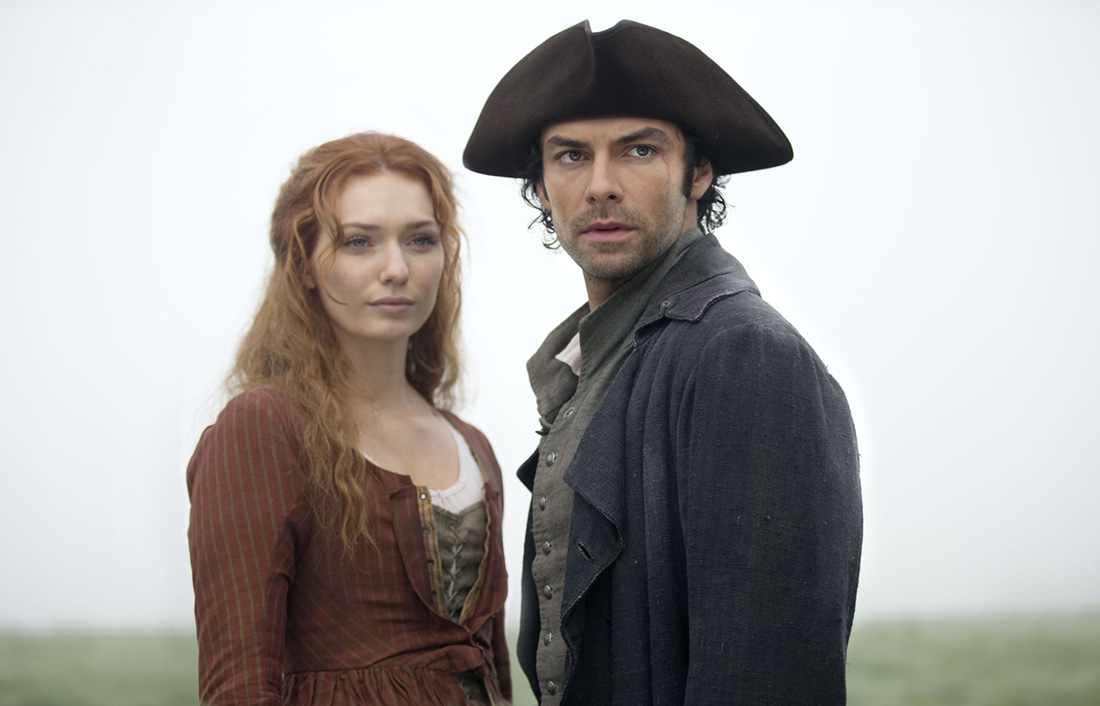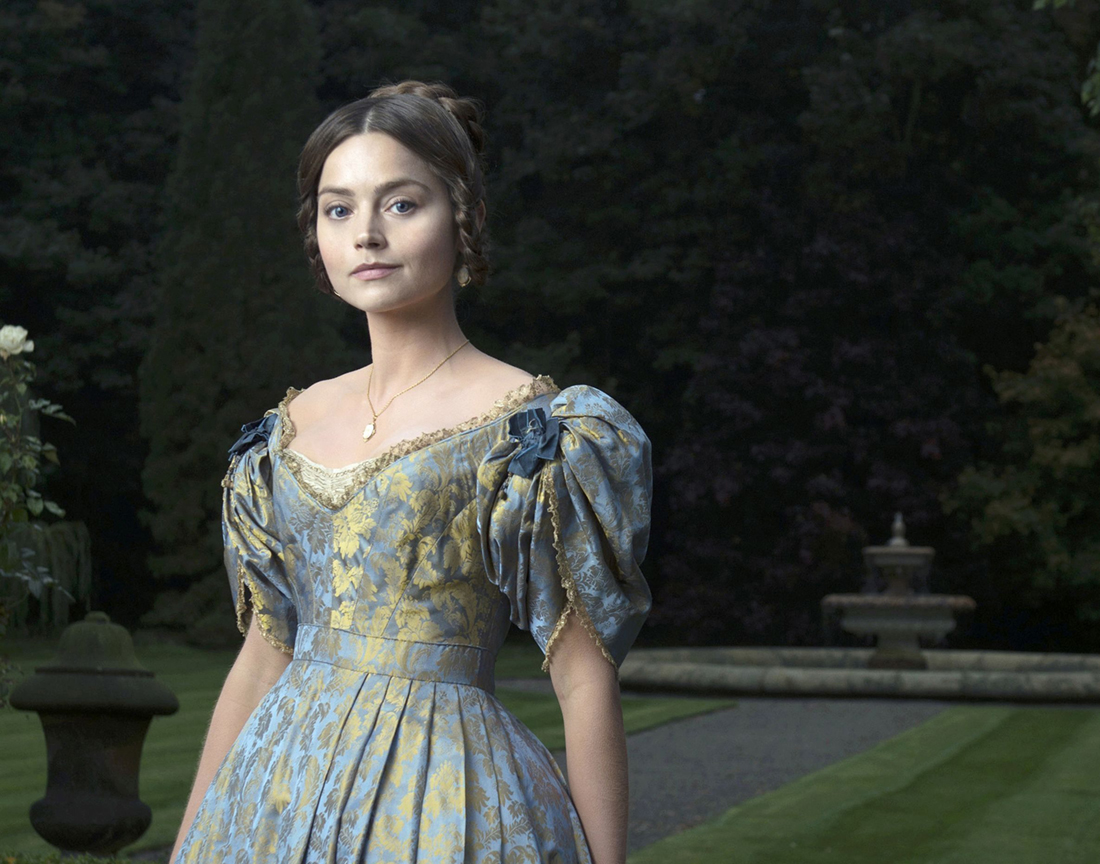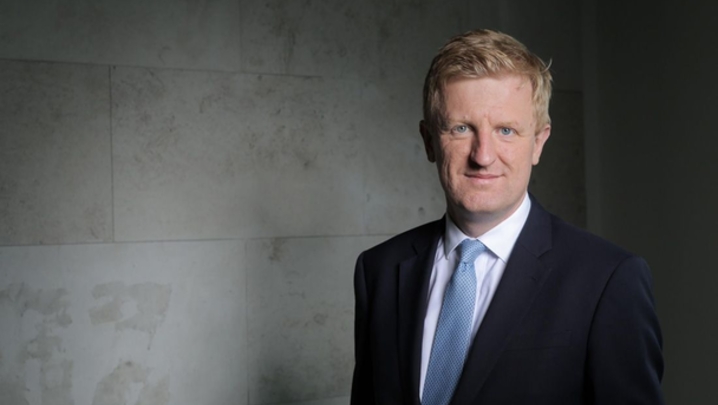Ben Dowell meets the co-founder of drama specialist Mammoth Screen, Damien Timmer, whose eye for detail defines him
For an example of the passionate perfectionism of drama producer Damien Timmer, look no further than the press screening of the first episode of ITV drama Victoria, starring Jenna Coleman.
On the big screen, Timmer noticed something awry with the young queen’s eyes. Her contact lenses were visible. But rather than let the problem slide – after all, who would notice this small detail on a TV set? – Timmer and his post-production supervisor spent the best part of August regrading each and every one of Coleman’s scenes.
“It was very unforgiving on the big screen and, if you’re not taking it seriously, what’s the point?” he says from the comfort of the West End offices of his production company, Mammoth Screen, where he is Joint Managing Director.
“It slightly dominated August a couple of years ago, which was not particularly helpful. But, these days, there are too many people who are going to tell you – very vocally – that you’ve got it wrong.”
His dedication to the task at hand doesn’t end there. Friends and colleagues will tell you about his 5:30am emails, sent at the only time he knows he can guarantee being free. And there was the recent example of his 50th birthday party, a Robots and Romans fancy-dress event where, half way through the celebrations, Timmer changed from one outfit to the other.
This speaks volumes about the kind of lavish attention to detail he expects to see on his own shows. These include Endeavour, the Morse prequel set in the 1960s, the Edwardian period piece Parade’s End, Victoria and Poldark, which started its fifth and final series on BBC One in mid-July.

“Many producers think only about the deal. Damien thinks only about the show and making it as brilliant as possible,” says Victoria creator and writer Daisy Goodwin. “He got the idea for Victoria straight away and he commissioned a pilot script straight away, even though I hadn’t written a drama before. That showed imagination and courage.”
When I put these points to him, he jokes that his first email was sent at 5:00am this morning, not 5.30am. And I believe him. He’s not the only hard worker in TV but he seems to really go the extra mile. Why?
“That old adage, you’re only as good as your last show, is something we all feel very strongly,” he explains. “That imposter syndrome, the sense that you’re going to be found out with the next show you make, so you have got to make it as good as it possibly could be.”
His childhood helps to explain his dedicated passion for TV per se and drama in particular.
When he was five years old, Timmer’s parents spent three years working in the Far East, taking him away from Britain and British television. That absence fuelled his desire.
“I was an only child and grew up in a world where television was this hugely important force. As it is now. But it felt even more so then.… I was lonely. I missed television so much, which meant that, when I came back to England, I loved it even more because I had had time away from it. And I was such a fan.
“I took it terribly seriously, I suppose, because I understood its power from a very early age. You hear stories about Michael Jackson, the ex-BBC Two controller, planning his imaginary schedule in his fantasy Radio Times. I was almost as extreme as that. I did love television and had very catholic tastes.”
"The BBC is just about the best thing this country has got going for it."
So by his early twenties, and after graduating from Oxford (where he read history), he found he “wasn’t equipped to do anything but enter that world”.
Post-graduation, he quickly became fascinated by an Australian soap opera called E Street. He went to the reading room of the Australian Embassy and learnt about it in Australian newspapers. Eventually, he wrote to the producers. They told him that, if he could pay his own fare, he could come and work on it. This is what he did until E Street was axed.
He returned to the UK, and produced Peak Practice for Central Television in the late 1990s. This was followed by a stint as a producer on Night and Day, working alongside the future head of BBC drama, Piers Wenger.
It was with Wenger that he formed Mammoth 13 years ago, spending “six months in an empty office and wondering if we could make it work”.
Mammoth’s first big commission was Lost in Austen, Guy Andrews’s witty take on Pride and Prejudice. As well as productions such as Parade’s End (a hit for Benedict Cumberbatch) and Endeavour, his company is responsible for all the recent BBC TV Agatha Christie adaptations.
Now, Mammoth is owned by ITV (it completed the takeover in 2015), with a turnover in the region of £80m. The company expects to deliver 42 hours of original drama in 2019 (up from around 28 hours in 2015).
It has a core staff of 28 working across a slate that includes 10 shows in varying stages of production. One of these is already being described as the new Poldark. It is a script for The Lymond Chronicles, Dorothy Dunnett’s wonderfully complex collection of historical yarns set across Europe in the mid-16th century. The hero is the charismatic Scottish nobleman Francis Crawford of Lymond.
Mammoth has also optioned Sunday Times journalist Oliver Shah’s book, Damaged Goods: The Inside Story of Sir Philip Green, the Collapse of BHS and the Death of the High Street.

A new Pride and Prejudice, adapted by Nina Raine, is in the works for ITV. A fourth series of Victoria is expected next year, when Jenna Coleman’s queen faces the death of her beloved Albert (leading some to speculate that it could be her final outing in the tiara).
But don’t think that because it’s owned by ITV, Mammoth is predominantly a supplier to that particular network. Timmer describes World on Fire, Peter Bowker’s seven-part Second World War drama for BBC One, starring Helen Hunt, as “the biggest thing we have ever made in terms of scale.”
Mammoth is also working on an eight-hour drama, The Serpent, for the BBC, based on the real-life serial killer Charles Sobhraj, who preyed on tourists on the South East Asian hippie trail in the 1970s.
“I feel that, in terms of our cultural life and the life of the nation, when so much feels unstable and unhappy in the political landscape, the BBC is just about the best thing this country has got going for it,” says Timmer. We meet on the day that the BBC is attacked by the papers (and Piers Morgan) for taking away free licences for the over-75s.
In fact, he says his blood is boiling: “I genuinely love the BBC, it needs to be cherished. I can’t imagine a world where we didn’t have it. Those British broadcasters that we have all grown up with are such an important part of the fabric of our lives. My hinterland is completely shaped by it. One of the things that unnerves me is imagining a world in which I had grown up without those institutions shaping us.”
Passionate, see. From the very start of his life. No wonder he works so hard.







